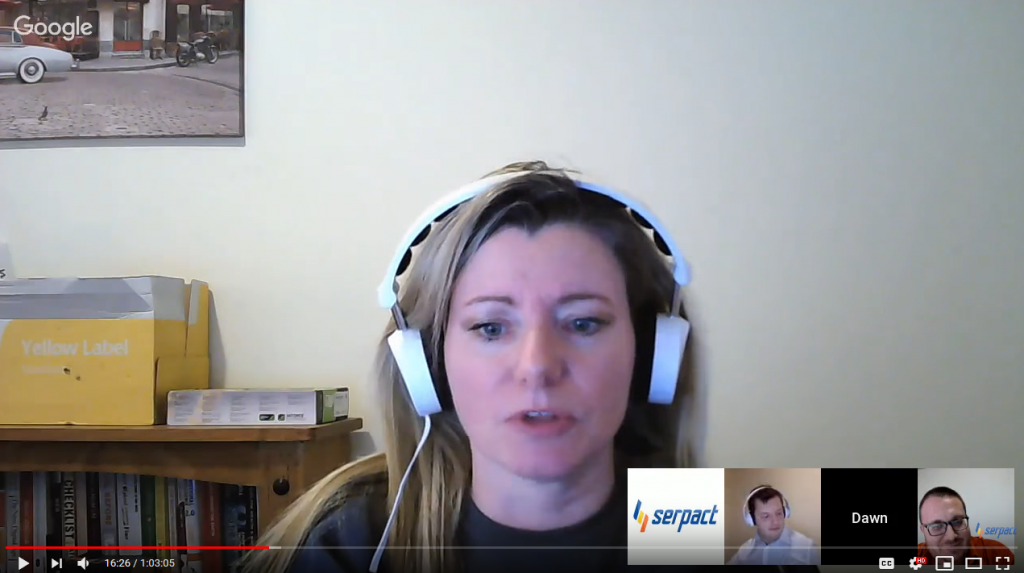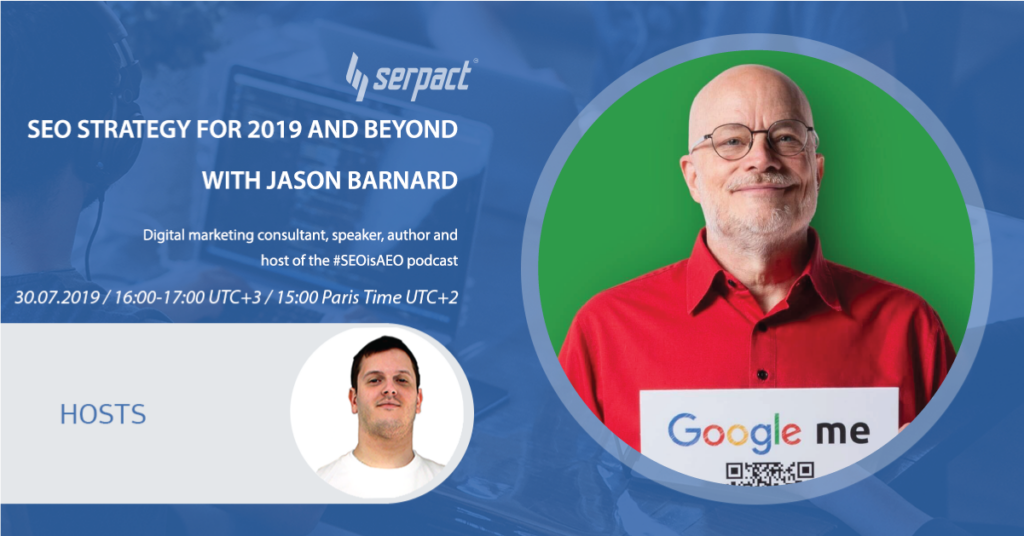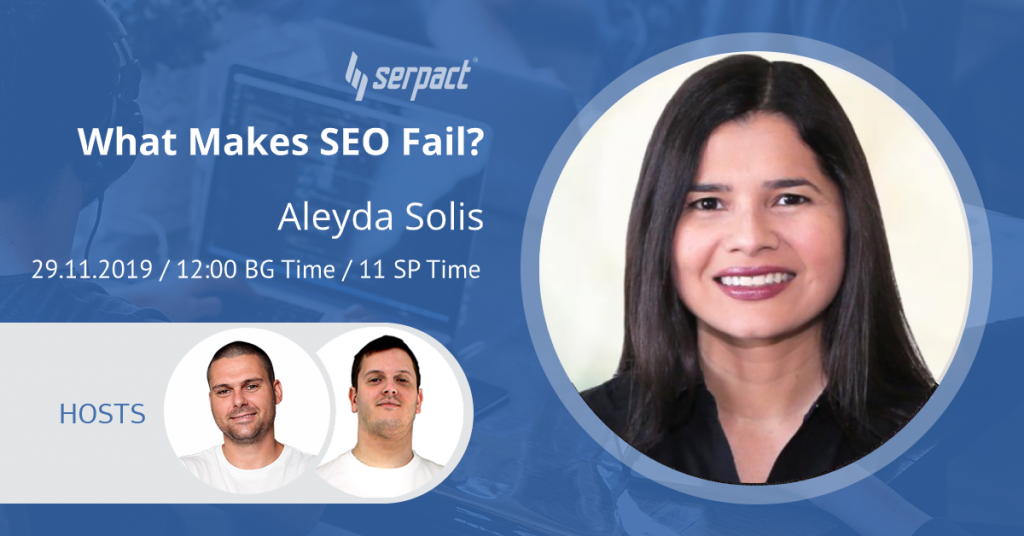Webinar recap: Mobile First Indexing & Mobile Information Retrieval with Dawn Anderson

You can watch it here:
Here’s a recap of the webinar Mobile First Indexing & Mobile Information Retrieval with Dawn Anderson streamlined on Jan. 22, 2019.
Down is an assistant lecturer and lectures on SEO and a digital marketing strategy at Manchester Metropolitan University, is also a lecturer at numerous international conferences and is managing an SEO consulting agency, Move It Marketing, based in Manchester, UK. Director and founder of Top Tradespeople.
Dawn has participated in some of the leading UK and global search marketing conferences including Pubcon (Las Vegas and Florida), SASCON (Manchester, UK), European Search Conference (Liverpool, UK), Search Leeds (UK), Brighton SEO (London, UK), SMX London (London, UK), SMX East (San Jose, US), Ungagged London (London), Ungagged Las Vegas Search (Dallas, US).
She also lectures and conducts search and marketing seminars for students at the Manchester Fashion Institute.
Let’s move on to our conversation.
Dido Grigorov: Hello, Down! Would you tell us how your SEO career started, what inspires you in SEO and something interesting or fun for you?
Dawn Anderson: Thank you for your invitation to be your guest. I have been doing SEO for 12 years, I’m learning on my own. I started studying, reading books, attending conferences to develop and raise my knowledge. I have read many books in my area over time. This is an eternal development and never stops.
Dido: How can you explain mobile first indexing from a technical or semantic perspective?
Dawn: Mobile UX is very different. Photos, icons, texts – everything is quite different.
Bobby: Down, do you think that now Google’s quality signals will be changed in the mobile first era?
Dawn: No, that’s why it’s called the search policy, because it’s responsible for the quality of the user’s results and happiness. User has to be satisfied, and the data show when it is. So – it remains constant – the content and the context must provide answers to people and this happens quickly. Quality will always matter and that’s good.
Bobby Arapchev: Are there any good practices that we can apply to prepare for the MFI?
Dawn: Speed is very important for mobile, you also need to review your demographic and Google Analytics data to respond to them. You have to pay attention to the technical parameters of SEO, but also the content, it has to meet your users’ queries. It must be specific and clear. Photos and videos are also very important, use them because they are searched for and carry you traffic but also work for good speed with them.
Dido: What do you think are the most common mistakes we encounter in mobile and which we should avoid?
Dawn: The main problem is if you don’t have a responsive website, a big problem is using a lot of JS files, too many photos, too many CSS. Check that everything is passing Fetch as Google successfully.
Bobby: Down, do you think there are special ways to create content that will increase our ability to achieve featured snippets?
Dawn: Yes. First, you need to do a research with keyword research tools. Most such results come from high-quality sites. If you want to qualify for events or reviews, you need to keep up-to-date information. You have to analyze – if you want to qualify for Question and Answer – you have to prepare good questions and most good answers to them.
Dido: What do you think is the difference between the traditional information retrieval and the mobile one?
Dawn: Yes, mobile information retrieval is an information retrieval sub-category and discusses topics such as conversational research, conversational search /voice search/, assistive search /Google Assistant/, Assistive IR, various mobile devices, anything that can be worn and carried such as Google Home, and so on. So mobile information retrieval is one of the fastest growing topics. The Mobile Information Retrieval book (from Fabio Crestani) is small book and I read it on weekends. The information needs of the mobile device, how the user reads, whether the content is to be broken down into short pieces, the user’s distraction, the understanding of people’s behavior, all of which are important things that some of this book looks at.
Dido: Yes, Google also has patents for multimedia retrieval, understanding of images, video materials and their subtitles, and the ranking of these search materials.
Dawn: Yes, multimedia retrieval is different, here we have other features – Google reads all the tags on the image and text around it. The photos engage much more.
Dido: So, do you agree that information retrieval and multimedia retrieval are related?
Dawn: Yes, they are connected!
Bobby: Down, would you tell us more about two important points in Mobile IR – Context Awareness & Content Adaptation? What role do they play? Are they connected to each other?
Dawn: They play an important role. For information seekers – understanding the query and the specific scenario are important – to understand the intent of the seeker, destination, price, etc. We need to keep in mind the screen they use, their place, the type of their device. This is very important!
Bobby: We started talking about entities. Do you think Entity’s are important to mobile informational retrieval? And why?
Dawn: Firstly, every Wikipedia page is for some entity. Entities make clarifications and facilitate conversation. Wikipedia for me is the best structured guide in the world. Every individual document there is like a separate book.
Bobby: We are going to the last questions because our time is over. What is your forecast for SEO – do we see any unexpected changes you think or not, and how do we change our strategy?
Dawn: I think we constantly have to adapt our strategy to what the user is looking for. Websites have a localization, people’s intent, to judge the different needs of the audience, different intents and search needs from different devices.
There are many books in this area already, many conferences are taking place, so we need to keep track of these things and keep up with trends. Only this will guarantee us a proper development and success in the search engine science.






